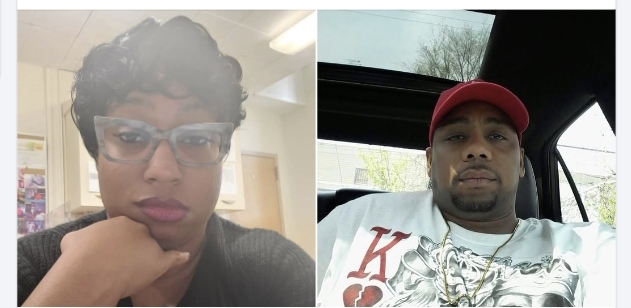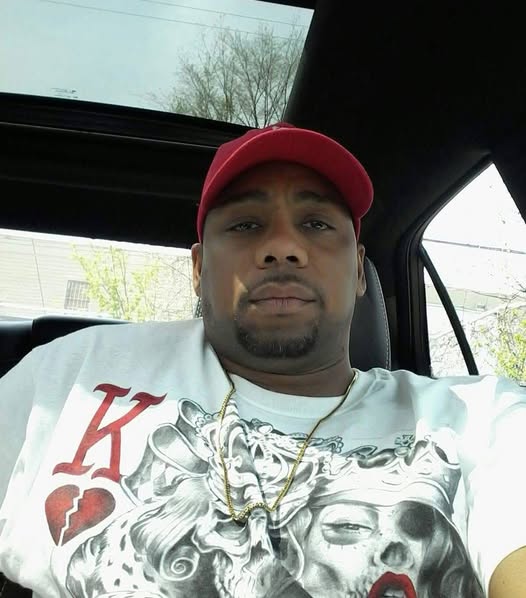In the heart of Detroit, a city pulsing with resilience and struggle, a woman named Latricia Green fought a silent battle against fear, desperation, and a system that failed to protect her. Her story, etched in court documents and whispered in the halls of Henry Ford Hospital where she worked, is a haunting reminder of the fragility of safety and the devastating consequences of unheeded cries for help.
Latricia, affectionately known as “Zo-Zo” to those who loved her, was a dedicated housekeeping employee at Henry Ford Hospital. Her warm spirit and quiet strength touched the lives of colleagues and friends, like Tamara Canada, who remembered her as a “really good person” who never caused trouble. But beneath her kind demeanor, Latricia carried a heavy burden—a relentless fear of her ex-husband, Mario Green, whose escalating threats cast a shadow over her life.




On June 13, 2025, Latricia took a courageous step. She walked into Wayne County Circuit Court and filed for a personal protection order (PPO) against Mario. In her application, she laid bare the terror she endured: Mario was stalking her, incessantly calling her workplace, threatening her coworkers, and even attempting to force his way into her office without permission. Her words were a plea for safety, a shield against a man whose presence loomed like a storm. But the judge, for reasons lost in the cold machinery of the legal system, denied her request.
Undeterred but increasingly desperate, Latricia returned to court on July 20. This time, her words carried the weight of a woman pushed to the edge. She described how Mario’s behavior had spiraled into something even more sinister. He had broken into her car, slashed her clothes, stolen her belongings, and followed her across the city, from Oak Park to Woodward and the Boulevard. In one chilling incident, he tried to ram her car off the road, a brazen attempt to trap her. “I have tried being cordial because I feel that the system has now let me down each time that I have tried to make reports on this man,” she wrote. Her father’s murder years earlier deepened her anguish, and she confessed, “I am now in mental distress and scared not knowing what to do.” She begged for help, her words raw with fear: “I have to constantly look over my shoulder to make sure this man is not following me to hurt me like he has done in the past with physical abuse. I am asking for help before this goes too far, and things are too late.”
On July 21, a Wayne County judge finally recognized the danger Mario posed and granted the PPO. It was a small victory, a flicker of hope that the system might finally protect her. But that hope was extinguished by a critical failure: the order was never served to Mario. Detroit Police Assistant Chief Charles Fitzgerald later admitted, “Unfortunately, the PPO was not served on her ex-husband… and it almost brings us here today.” That unserved piece of paper became a symbol of the system’s betrayal.
Mario Green was no stranger to violence. His criminal history painted a portrait of a man unbound by restraint—convicted of aggravated stalking in 2001, serving nearly six years in prison for arson until his release in 2012, and completing probation in June 2025 for failing to pay child support. Sources confirmed he had called Henry Ford Hospital upwards of 50 times, harassing Latricia and showing up repeatedly, each act a step closer to the unthinkable.
On the morning of August 22, 2025, the unthinkable became reality. Just before 10 a.m., Mario, a 53-year-old man standing 6 feet 4 inches tall, walked into the basement of Henry Ford Hospital, where Latricia was working. Surveillance footage captured his deliberate steps as he entered the restricted area. What followed was a brief but fatal altercation. After a heated argument, Mario pulled out a handgun and fired multiple shots, ending Latricia’s life in a burst of violence that shattered the hospital’s quiet routine. She was killed in the very place where she had devoted herself to caring for others.
As chaos erupted, Mario fled in a white 2011 Dodge Charger, speeding north on the Lodge Freeway. The hospital went into lockdown, and a citywide manhunt began. By 2 p.m., police found his abandoned car near Lahser Road on Detroit’s west side, but Mario, dressed in black with a pinkish backpack slung over his shoulder, remained at large. Detroit Police Chief Todd Bettison warned the public: “He is presumed to be armed and dangerous.” The community held its breath, grieving a woman whose life was stolen and fearing a suspect still on the run.
Latricia’s story is more than a tragedy—it’s a searing indictment of a system that failed to act. She had done everything right, reaching out for help not once, but twice, her pleas documented in stark black and white. Yet the system, burdened by bureaucracy or oversight, left her vulnerable. Her words in that July 20 application now echo as a haunting prophecy: “I am asking for help before this goes too far, and things are too late.” For Latricia, it was too late.
Henry Ford Hospital mourned her as family, releasing a statement that spoke to the collective heartbreak: “We are devastated by the loss of our teammate, and our hearts go out to her loved ones, her family, friends, and the people she worked with every day.” They confirmed the incident as a targeted act of domestic violence, and while they emphasized their security measures—metal detectors at the emergency department and an on-site police force—questions linger about how Mario gained access to the hospital’s basement.
As Detroit police continue their search for Mario Green, Latricia’s memory lives on in the voices of those who knew her. Her friend Tamara, tears in her eyes, shared how they confided in each other about their struggles, unaware of the full extent of Latricia’s private torment. On platforms like X, the public’s outrage and sorrow poured out, with posts decrying the systemic failures that left her unprotected and calling for urgent conversations about Black femicide and domestic violence.
Latricia “Zo-Zo” Green was more than a victim. She was a woman who loved, worked, and fought for her safety until her final moments. Her story demands more than tears—it demands change, so that no one else’s cries for help are written in court papers but ignored in real life.
